Performances
Writing & other encounters
Content types
Tags
- Plays (7)
- Warlike Collage (3)
- The Dybbuk (3)
- Twenty Two Pictures (3)
- Cheruta (3)
- Grace (3)
- Ruthie Osterman (2)
- Theatre du soleil (1)
- Arian Mnushkin (1)
- Iphigenia in Aulis (1)
- Euripides (1)
- Sophocles (1)
- Antigone (1)
- Performance Practices & Research (1)
- I am. I am. I am (1)
- ZSPERA'42 (1)
- Postal Delivery to God (1)
- Babylon Beyond Borders (1)
- Bush Theatre (1)
- Live Stream (1)
- Up Next (1)
Links
Links
Postal Delivery to God
“Woman Festival 2012”, Hulon, Israel.
“The Arab -Hebrew theater”, Jaffa, Israel.
Created by Amit Zarka & Ruthie Osterman

“When a child wants to fly,
She is willing to jump from the roof of a building in Tel-Aviv
For that one moment, that split second of flying.
When a child wants to fly,
Many years after her wings had been tied close to her arms
She feels starved.
When a child wants to fly,
And she is told “go on, fly, now, to wherever you want”
She immediately becomes
A pillar of salt
A balloon exploding
Darkness.”
(from Postal Delivery to God)
The adolescence story of girls in the Jewish-religious world searching for God.
The play “Postal Delivery to God” is a unique creation dealing with the adolescence processes in the national-religious society and the individual’s search for God, from a feminine perspective.
The story of two religious girls searching for God during three periods of their lives: as girls, adolescents and women.
Each period is characterized differently and raises various conflicts regarding the dialogue with the Creator, definition of identity and experiences belonging to each one of the girls.
The play is based on the personal stories of the play’s creators and performers, who all come from the Jewish-religious world.
Each one of them is in a different place regarding her relation with God and the observance of His commandments – religious and non-religious.

The play has won the competition of “Theater writing in memory of Dov Gorfung.”

Writing & Directing
Amit Zarka & Ruthie Osterman
Choreography
Ron Amit
Original Music
Haim Rozenblum, Lior Haimovich
The song “flow my tears” /John Dowland” – Collective “Barrocade” , Yeela Avital.
Lighting Design
Amihai Elharar
Producer
Lior Sabag
Actors
Dickla atias, Talia shashua, Moria avraham, Moria Bashari, Sivan Aviani, Amit Zarka, Keren Moshe ,Reut Barbi, Ruthie Osterman
Video filming and editing: Ariel & Shlomit Choen


Reviews and press materials:
Review of “Postal Delivery to God” on City’s mouse
Review of “Postal Delivery to God” on Walla-Judaism

Stills photographer: Uri Drukman
For contact and booking a show: [email protected]
With the support of:
Israel Lottery Council For Culture & Arts.
MATAN – Experimental Theater Center.
A joint project of: The Rabinovich Foundation for the Arts, Tel Aviv,
Recanati Foundation, Israel Ministry of Culture & Sport, Theatre Department – Art and Culture Council.
Cooperation with The school theater arts in the Kibbutzim College.




Photo Book
” Human kind cannot bear very much reality.”
(T. S. Eliot, Murder in the Cathedral)
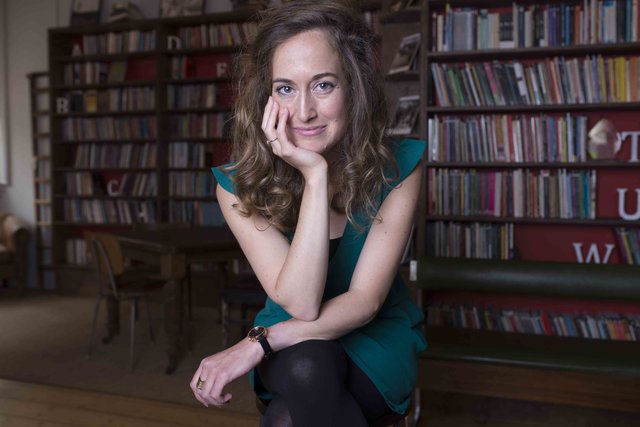
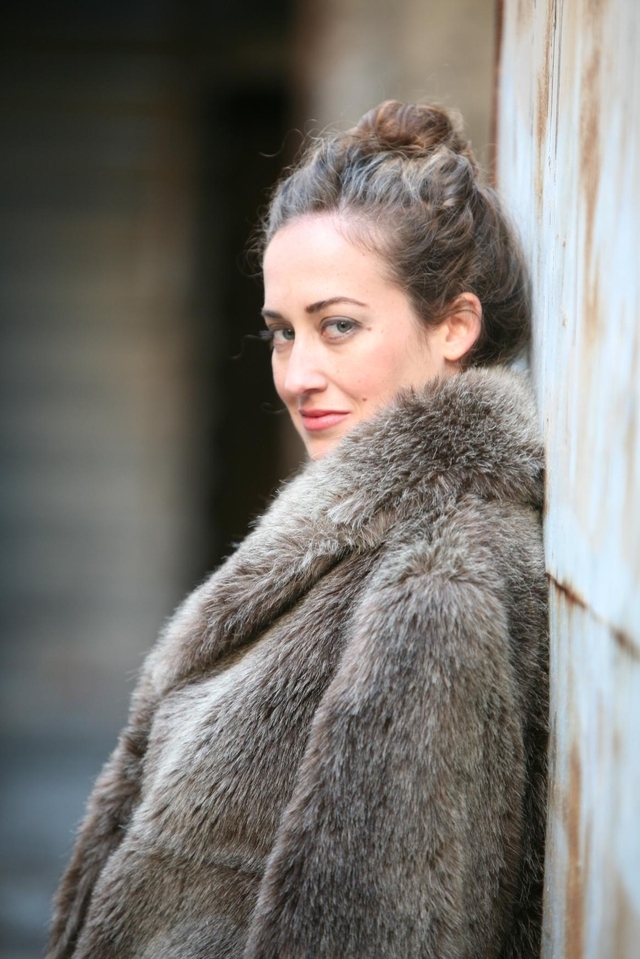
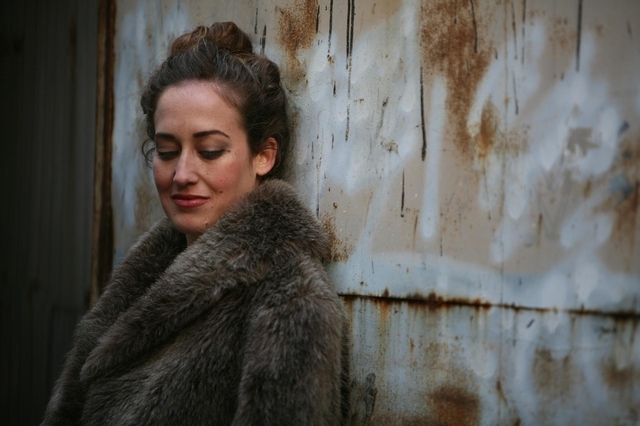
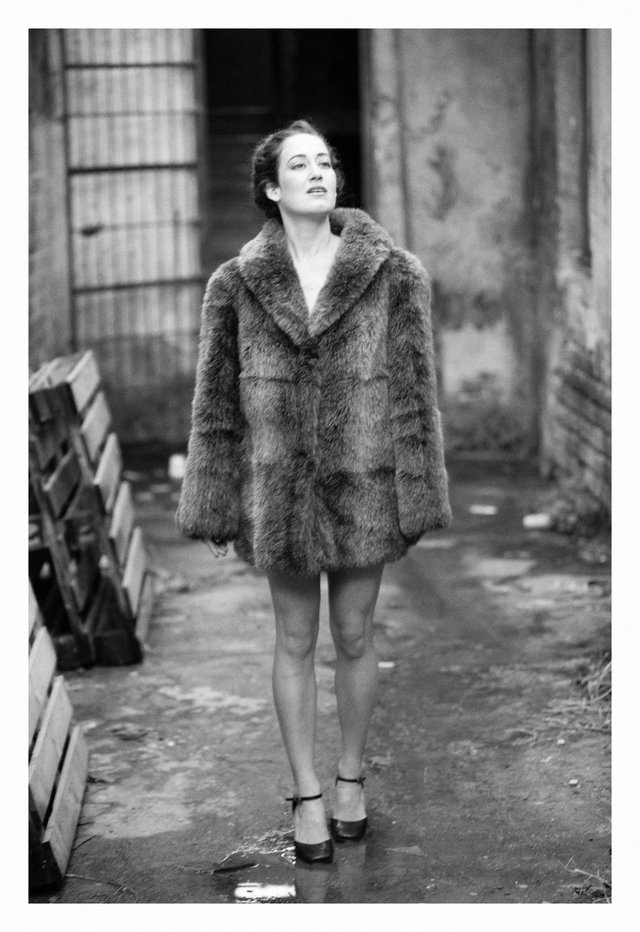
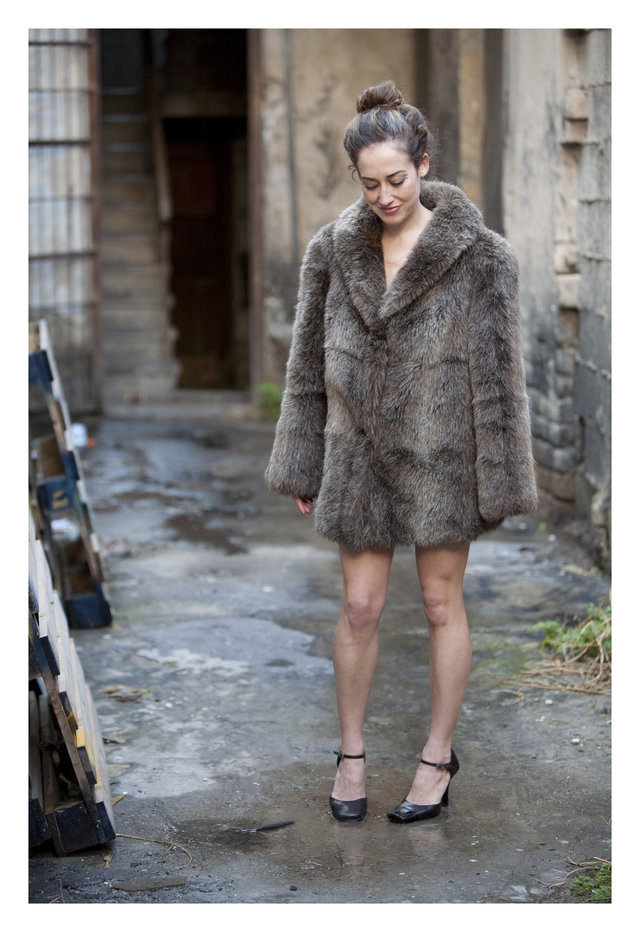
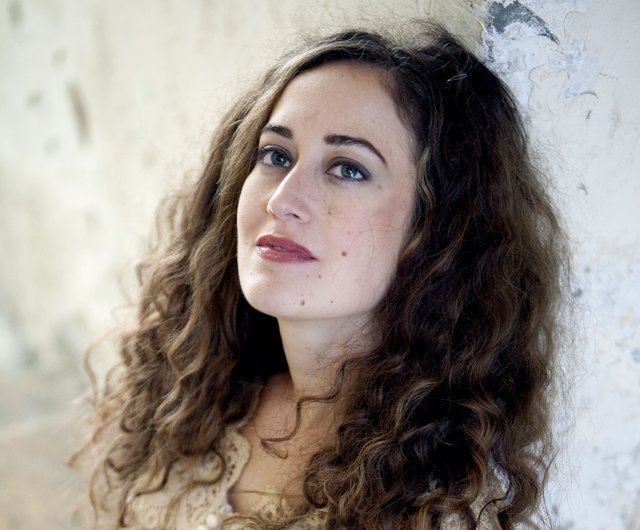
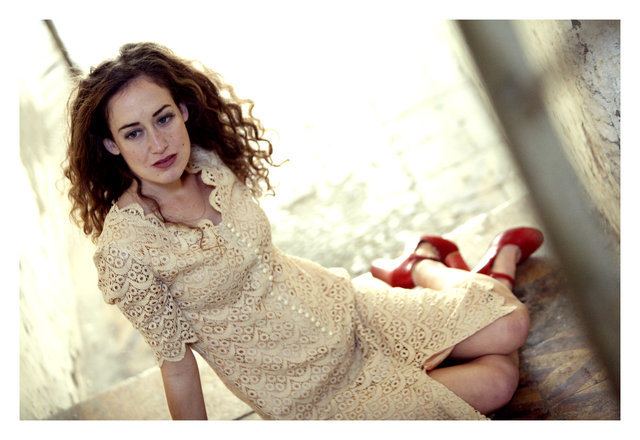
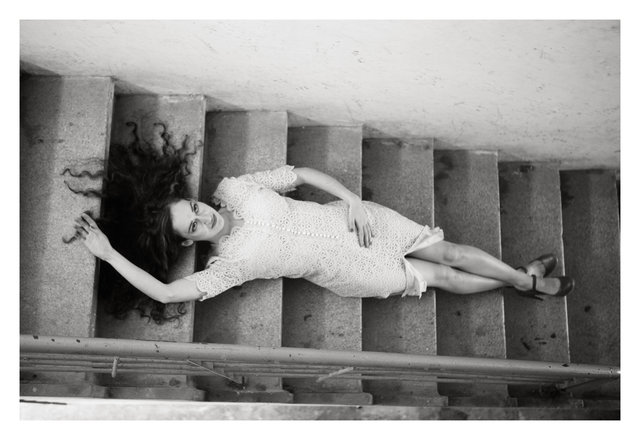
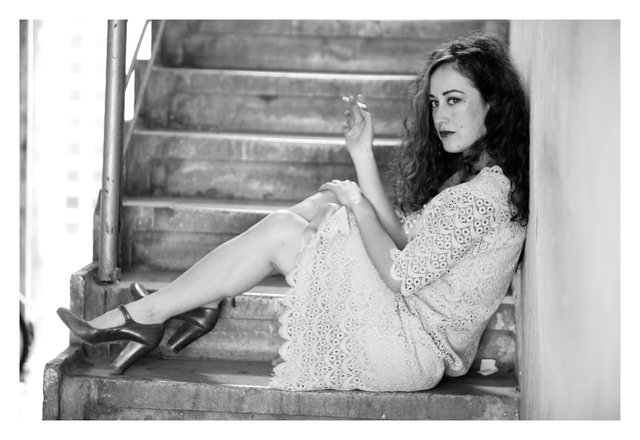
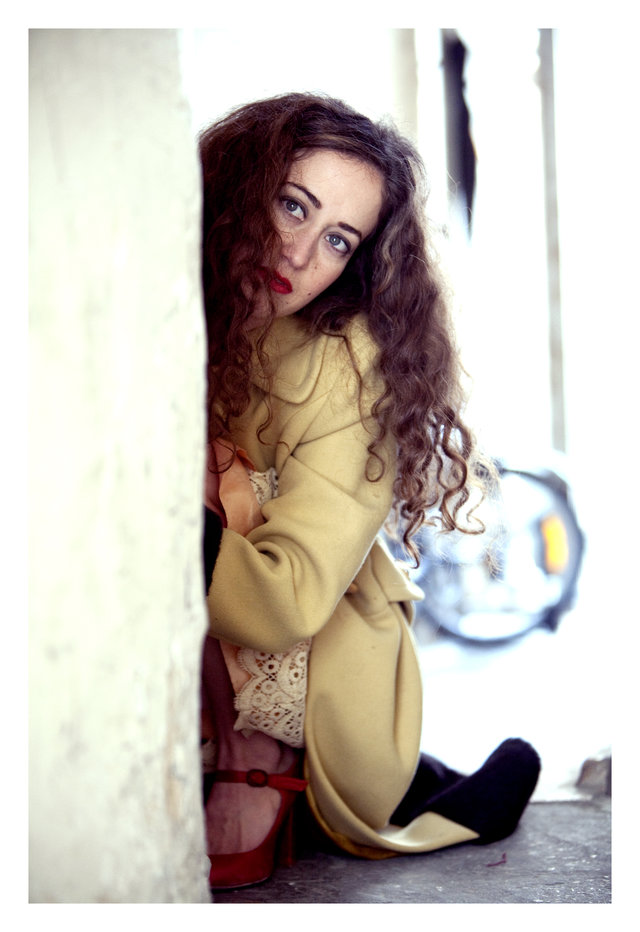
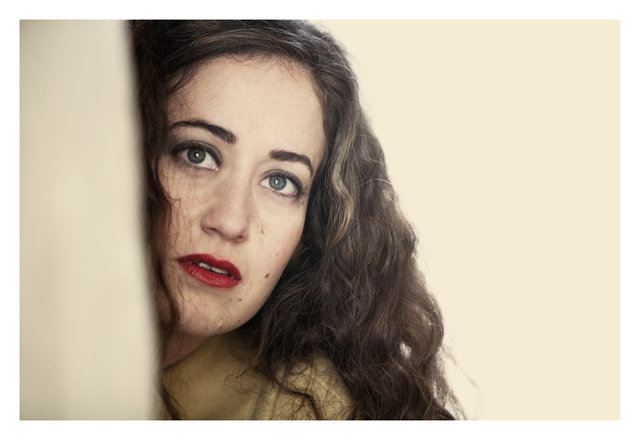
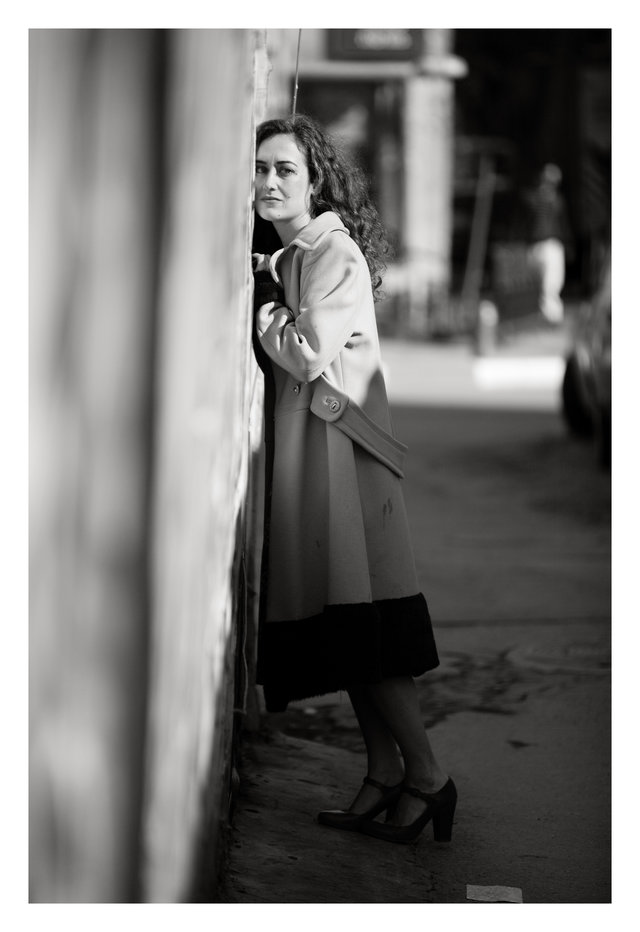
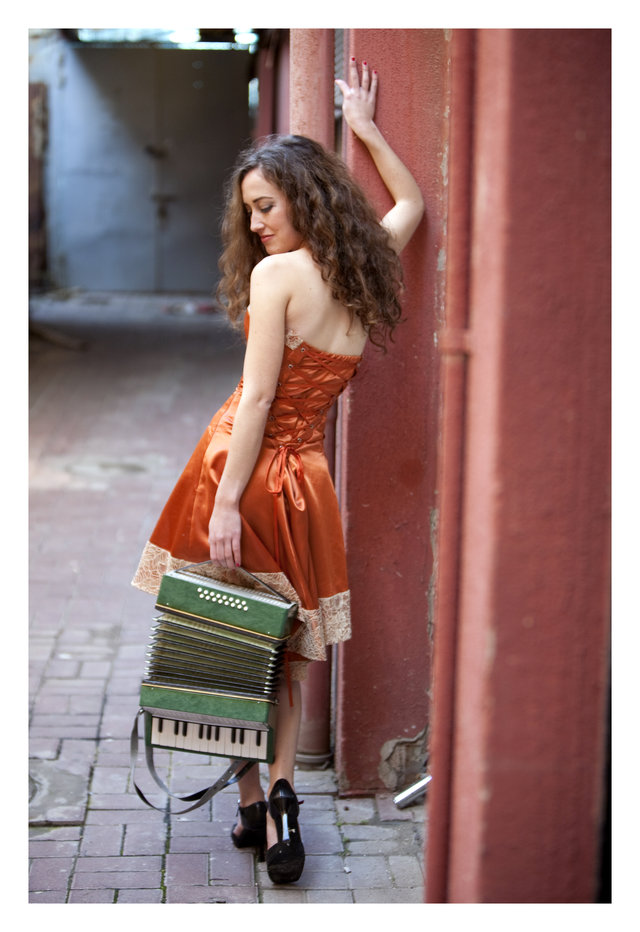
Stills photographer: Ifat Golan.
Grace
“Notzar” theatre, Bat-Yam, 2010
Writing and directing by Ruthie Osterman.
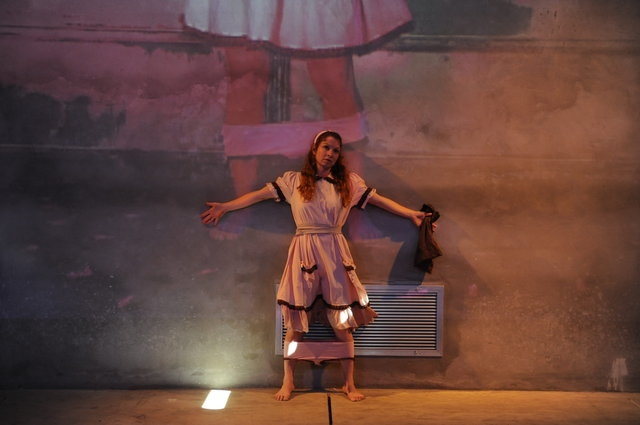
(from the play “Grace”)
The play tells the story of an encounter between a girl and an old woman on the railway tracks on the outskirts of town.
The woman has come to end her life on the tracks and thus gain longed-for peace, and the girl is there looking for the toffees that mark her way home.
For the woman, the railway tracks are a remnant of a childhood memory of abandonment, when her parents threw her from a train window during the war. For the girl, the tracks are where every night she meets a gang of children who abuse her.
The surprising encounter leads to a mutual reflection of the characters until it sometimes seems that they are one and the same. Out of the characters’ need for warmth and love, and their scratching each other’s wound, a brutal world replete with violence and fears, together with a desire for warmth, closeness, and a wish for reformation is revealed to the audience. At the end of the night the two go their separate ways, with each of them making a choice between life and death, and all that remains for them is the force of the human encounter with all that it brings to the surface and enables.
The play was inspired by documentary material dealing with violence and abuse in Israel.
Cheruta
A Dance theater which in based on Talmudic texts and inspired by Dervish dances.
Directing and adaptation by: Ruthie Osterman
Kibbutzim College, Tel-Aviv, 2010
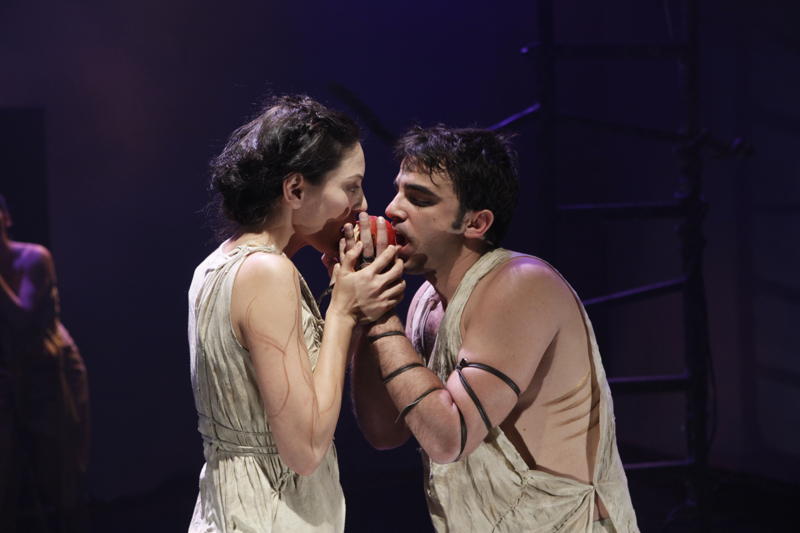
(Rabbi Menachem Mendel from Kotsk)
Two Talmudic “Midrashim” (religious allegories) tell the story of two loving couples. Between these two couples stands a pomegranate.
The married couple, Rabbi Chiya and his wife, do not have sexual relations.
The second couple takes the risk of a marriage offer which is rejected. The two couples experience a moment of internal and passionate awakening which will change their lives.
These are two stories about the fear of intimacy – with myself and with the other. Stories about gracious moments of agreement to be free, to meet myself without masks.
The Dybbuk
An original adaptation to Ansky’s mythological play.
Adaptation and direction by Ruthie Osterman.
Kibbutzim College, Tel-Aviv, 2007
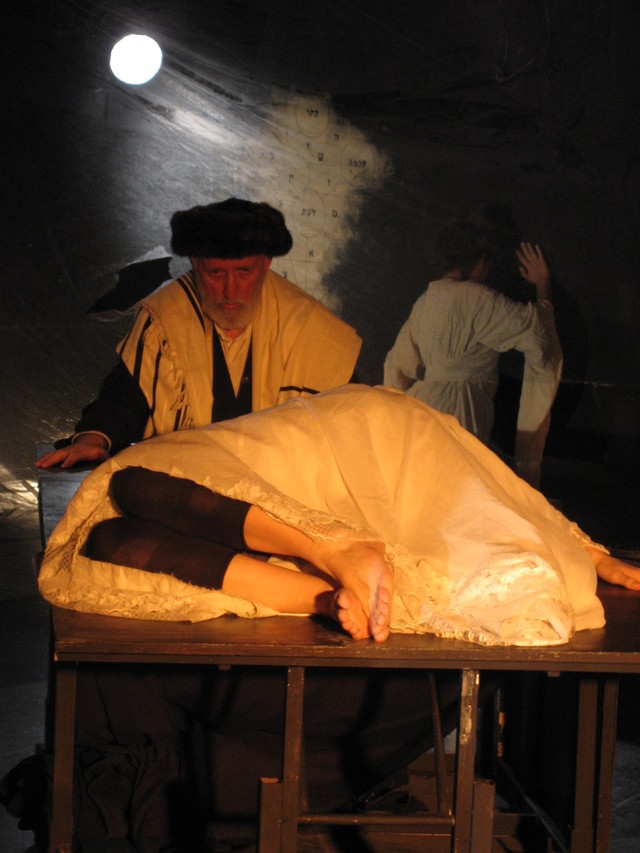
(Song of Songs 8, 7)
The play “The Dybbuk” consists of stories and tales from the Jewish tradition and Kabala.
In the center there is a love story between Lea and Chanan. Chanan deals with practical Kabala and dies.
Lea’s father arranges her marriage to another bridegroom, but Chanan’s soul can’t find peace.
Being torn between two worlds Chanan breaks trough the border between the dead world and the living world and enters Lea as a “Dybbuk”. SEE MORE
Warlike Collage
Based on “Antigone” by Sophocles and “Iphigenia in Aulis” by Euripides.
Kibbutzim college, Tel-Aviv, 2006.
Writing, directing and design by Ruthie Osterman
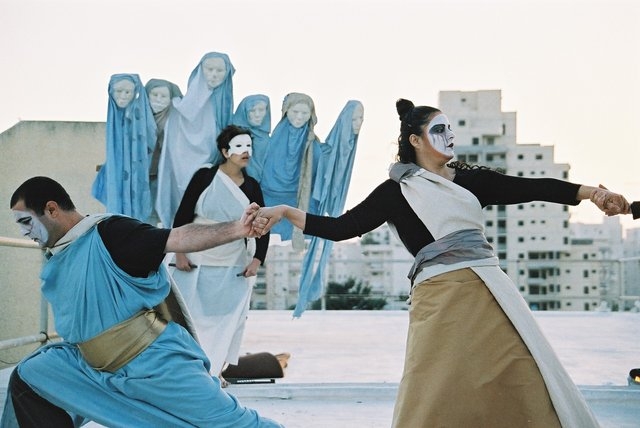
From the play “Warlike Collage”

When people were evacuated from “Katif” area in the Gaza strip, the Israeli nation was divided into two groups: one, in blue, supported the evacuation. The second, in orange, was against it. The struggle between these two different worldviews constituted the basis of this artistic work.
The internal struggle I felt as a creator between the belief in God and the Zionist values on which I grew and the passion and freedom to create converged with a cruel political situation in which, for the sake of achieving peace, many of my friends had to leave their homes against the values on which they grew. The question of self-sacrifice and its limits versus the state of the law bothered me a lot.
At that time of evacuation, while I was 70 kilometeraway from Gaza, on the roof of the building of the “School of Art” in Tel-Aviv, I composed this play, combining texts from Greek tragedies, which I like very much, and some of my personal texts.
The creation of the play was inspired by “Theatre du soleil” by Arian Mnushkin in France.
Twenty Two Pictures
Wins the best show in Acre Festival of Alternative Israeli Theater 2008.
Twenty and two pictures from the lives of three women: grandmother, mother and daughter.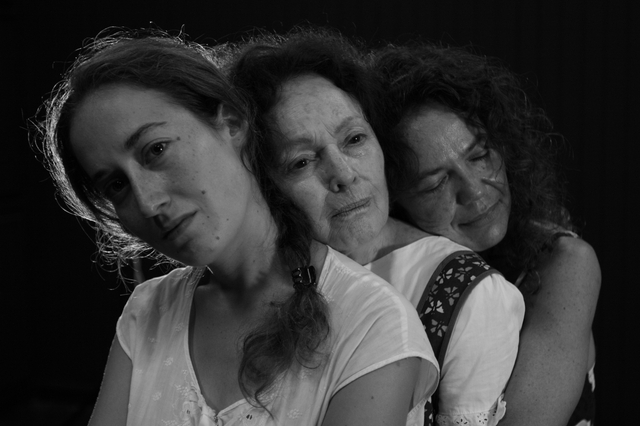
“A literary work, full of drama and humor which describes the world of a young girl, third generation of the Holocaust, who grows up in between two previous generations- grandmother, a Holocaust survivor, and her mother. In a segmental and theatrical language which includes the pain of growth and loss, the actresses succeed in exciting the audience and give them a deep and true experience.”
(From the judges’ reasons in choosing the winner show in Acre Festival 2008)
The play takes place in the ancient space of the halls of the knights inAcre, on the three levels of the space, which echo the three characters who take part in the play.


